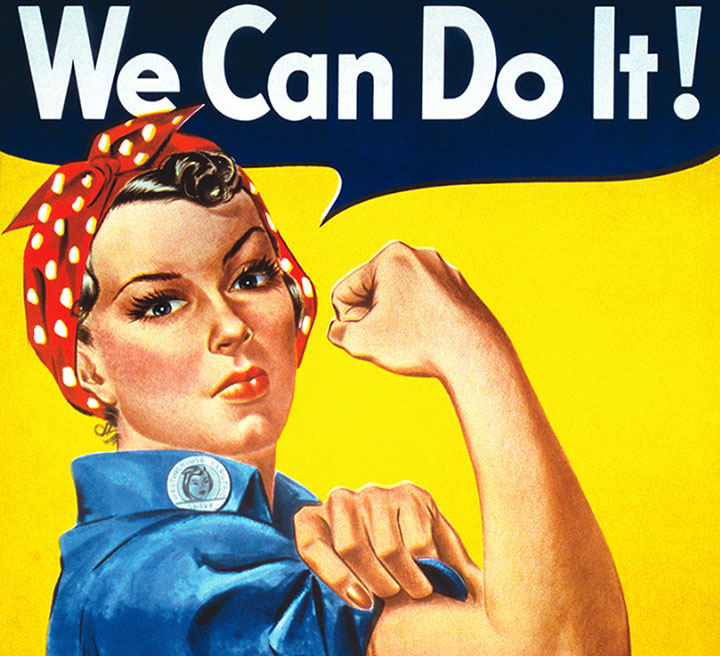As American men went off to fight in World War II, women stepped into non-traditional roles in defense plants and factories, becoming known as "Rosie the Riveters," whose contributions greatly supported the war effort and changed the perception of women in the workforce forever.
During World War II, as millions of American men joined the military to fight alongside the Allies, the nation faced a labor shortage that threatened the production of war supplies. To fill this gap, women were called upon to take on roles traditionally held by men, working in factories and defense plants across the country. These women, known as "Rosie the Riveters," became a symbol of strength and patriotism. They built aircraft, tanks, and ships, assembling the very machinery that helped win the war. Their work proved that women could excel in these critical, non-traditional jobs, challenging stereotypes and opening the door for future generations of women to pursue diverse careers. This iconic movement not only aided the war effort but also laid the foundation for women's rights advancements in the workforce, inspiring lasting change in gender roles and expectations.
Program Length:
50
Grade Levels:
Program Group:
World War II


